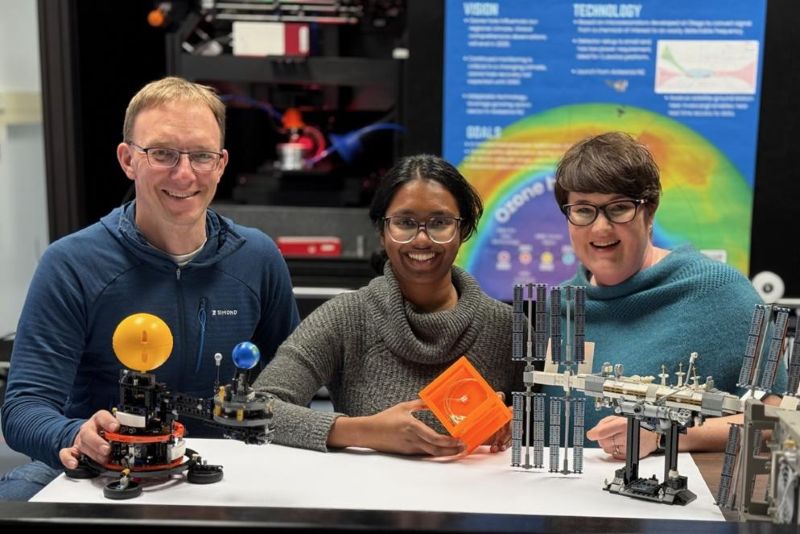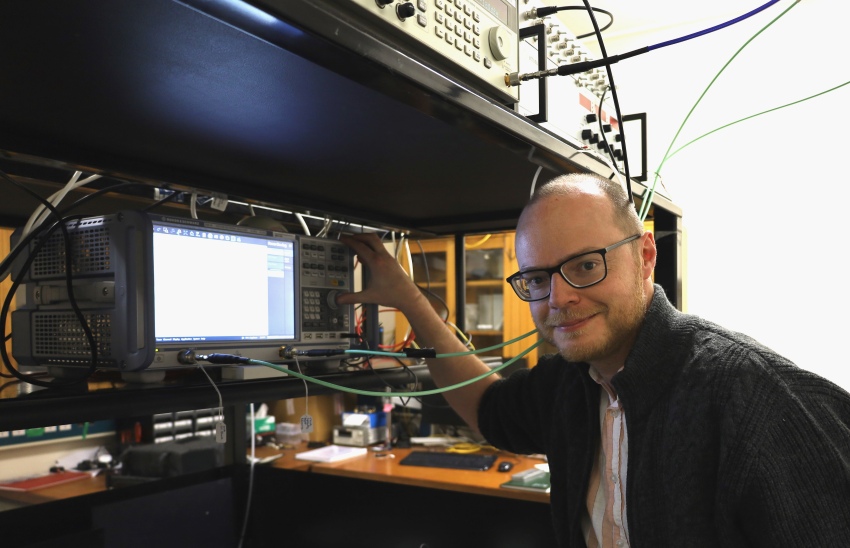New Zealand Contributes Advice on Global Quantum Future

Quantum technologies present such a myriad of risks and opportunities that the OECD has recently released policy guidance to member states on how to manage them and our Centre has played a role.
Interim science lead of Quantum Technologies Aotearoa, Professor David Hutchinson is part of the Global Forum on Technology's quantum expert panel considering the challenges.
While quantum sensing, computing and communications offer applications that can aid healthcare, sustainability and infrastructure development, among other things, the paper notes “they also pose risks to human-centric values, particularly concerning digital security and privacy”, especially the ability to breach digital cryptography.
But Professor Hutchinson says the greatest issue for the group has been more geopolitical.
“The biggest challenge was not the threats to security and privacy per se, but the tensions between wanting international collaboration to realise the potential of quantum technologies and the need to limit opportunities for nefarious actors, perhaps including hostile government agencies.”
He says Governments can help with this by creating strategies and putting in place mitigations at an early stage.
“While Governments in the UK, Singapore, Australia and elsewhere have developed well-funded plans to research these emerging technologies, very little effort has gone into managing the associated political risks. Any strategy New Zealand develops for further quantum technologies research must incorporate agreed governance measures to guide their use,” he says.
The OECD paper notes the international race for quantum supremacy and says there’s a desire for Governments to maintain quantum sovereignty or independence. At the same time, in New Zealand as elsewhere there’s a dearth of skilled workers available to take on the challenges. There’s also a growing inequality between countries that can afford significant investment in research and development and those that can’t.
“As the Science Sector Advisory Group (SSAG) report points out, New Zealand has under-invested in research and development for some time now. Conversely, we have a history of leadership in quantum optics for which we’re recognised worldwide. Lack of investment threatens that, but like a well-constructed house, those solid foundations provide a basis for renovation, if we do so in the current market,” says Professor Hutchinson.
In closing, the OECD group has recommended what it calls “anticipatory governance”, a set of agreed measures and values to guide the development and use of quantum technologies. Without these it poses a somewhat dystopian future, warning that a single-minded focus on security concerns could drive protectionism, slow technology development, stifle commercial applications and widen technology divides.
“Ultimately, the lack of coordinated efforts compromises the potential of quantum technologies to contribute to global development and well-being,” the OECD report warns.







